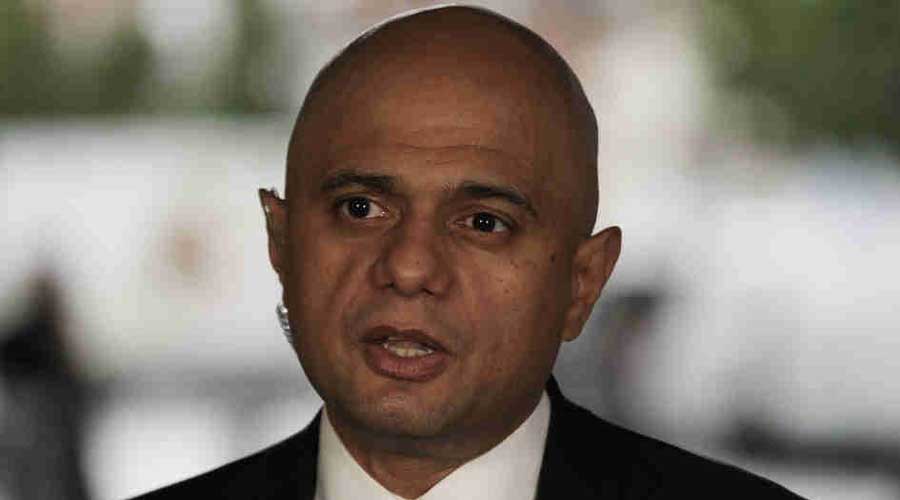The restrictions governing passengers from India are being relaxed by the UK government with the country being moved from the “red list” to “amber” from 4am on Sunday, August 8.
Indians will no longer have to quarantine in designated hotels for 10 days at a cost of £1,750 but they will still have to isolate at home or wherever they are staying for the same length of time.
Passengers will have to undergo a Covid test three days before departure to show they are in the clear — and take pre-paid PCR tests on day 2 and 8 after arrival.
For Indians resident in the UK, the rules are more relaxed. If they have had two doses of the vaccine in the UK, they do not have to isolate on returning to England after a visit to see family and friends in India or after a business trip. But they will be required to take a PCR test on day 2 after arrival.
The rule changes were explained to The Telegraph by a spokesman for the department of transport, who said the government had taken note of the declining number of Covid cases in India. But he also warned that India could be put back on the red list if there was a new surge in India.
The rule changes apply only to England. Scotland, Wales and Northern Ireland have devolved administrations. “In any case, there are no direct flights from India to Scotland or Wales,” the spokesman pointed out.
Health secretary Sajid Javid said changes to the travel lists were “based on the latest data and expert public health advice”.
Transport secretary Grant Shapps said: “While we must continue to be cautious, the changes reopen a range of different holiday destinations across the globe, which is good news for both the sector and travelling public.”
There has been pressure for India to be taken off the red list, for example, from the foreign secretary, Harsh Vardhan Shringla, during a visit to London.
The Prime Minister, Boris Johnson, has also received angry letters from Virendra Sharma, Labour MP for Ealing Southall, who told The Telegraph that 35 per cent of his constituents were of Indian origin: “Many of them were trapped in India when it went on the red list. They were treated like criminals. They said, ‘Why should be quarantine in hotels at a cost of £1,750 when my house is five miles away?’ Indian students were also told to quarantine in hotels when they were already paying for student accommodation.”
Sharma said: “I have received emails from Indians from all over the country — I represent every Indian living in the UK. I think trade was suffering and this change has been made for political reasons to allow for Modi to come to the UK.”
The business perspective was given by Anuj Chande, head of South Asia Group for Grant Thornton UK, who does an annual India in the UK tracker report.
“The move to amber for business between the two countries is a positive step but not entirely,” he said. “Only yesterday I was talking to a British Indian business woman who was expressing frustration at India still being on red stopping her going to India for business.
“Now she can go without worrying about having to quarantine when she returns assuming she is fully vaccinated under the UK vaccine programme. However, for Indian nationals coming here, the relaxation from red to amber still means they have to quarantine at home or in their hotel where they are staying even if they may have been double vaccinated in India.”
“This is still going to deter travel and the necessary face to face meetings still be difficult and are a slight impediment to business.“Having said all this we are all used the digital world and at Grant Thornton, we are still seeing the progress of business between India and UK including mergers and acquisitions activity.”There does seem to be an element of discrimination involved because passengers from the US or the EU who have been double jabbed are exempt from having to quarantine. For India now on amber, the rules state: “Before you travel to England you must: take a Covid-19 test — you must take the test in the 3 days before you travel to England; book and pay for Covid-19 tests — to be taken after arrival in England; complete a passenger locator form. On arrival in England you must: quarantine at home or in the place you are staying for 10 days; take a Covid-19 test on or before day 2 and on or after day 8.”
There are different rules for Indians resident in the UK: “You do not need to quarantine or take a day 8 test after you arrive in England if you are either: fully vaccinated in the UK or under the UK vaccine programme overseas; under 18 on the day you arrive in England and resident in the UK or in a country with a vaccination programme approved by the UK; part of a UK-approved vaccine trial.
“You must have had your final dose of the vaccine at least 14 whole days before the date you arrive in England. You still need to book and take a day 2 test.”
Now, India, along with Bahrain, Qatar and the UAE, is switching from red to amber.
India, where the Delta variant of the virus was first identified, was put on the red list on April 23.
Yvette Cooper, the Labour MP who chairs parliament’s Home Affairs Committee, criticised the delay in putting India on the red list.
“They should have put India on the red list at the same time as Pakistan and Bangladesh. Since then, we’ve had this three-week period in which thousands of people have returned from India and that probably includes hundreds of the new variant Covid cases,” she said.











